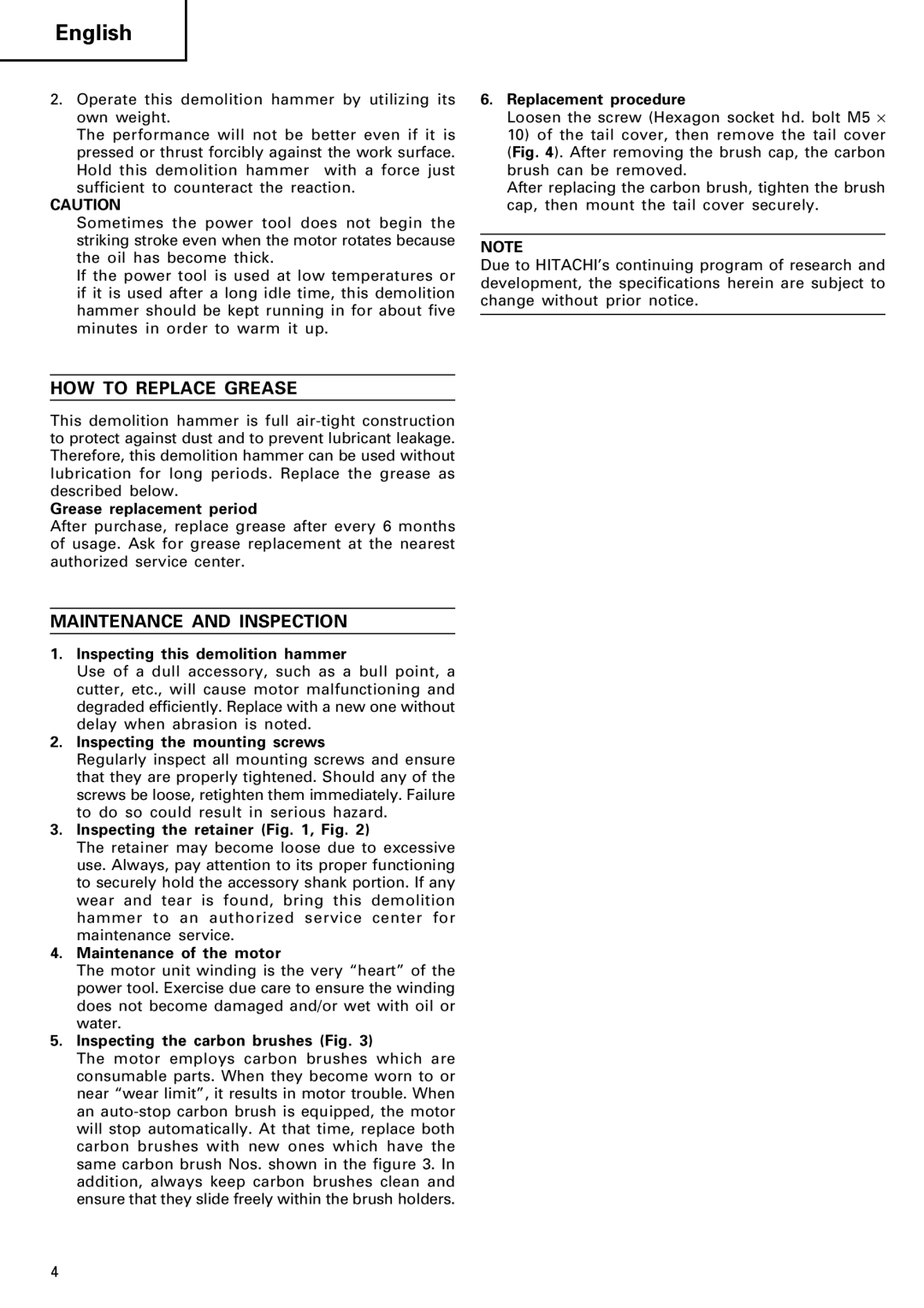
English
2.Operate this demolition hammer by utilizing its own weight.
The performance will not be better even if it is pressed or thrust forcibly against the work surface. Hold this demolition hammer with a force just sufficient to counteract the reaction.
CAUTION
Sometimes the power tool does not begin the striking stroke even when the motor rotates because the oil has become thick.
If the power tool is used at low temperatures or if it is used after a long idle time, this demolition hammer should be kept running in for about five minutes in order to warm it up.
HOW TO REPLACE GREASE
This demolition hammer is full
Grease replacement period
After purchase, replace grease after every 6 months of usage. Ask for grease replacement at the nearest authorized service center.
MAINTENANCE AND INSPECTION
1.Inspecting this demolition hammer
Use of a dull accessory, such as a bull point, a cutter, etc., will cause motor malfunctioning and degraded efficiently. Replace with a new one without delay when abrasion is noted.
2.Inspecting the mounting screws
Regularly inspect all mounting screws and ensure that they are properly tightened. Should any of the screws be loose, retighten them immediately. Failure to do so could result in serious hazard.
3.Inspecting the retainer (Fig. 1, Fig. 2)
The retainer may become loose due to excessive use. Always, pay attention to its proper functioning to securely hold the accessory shank portion. If any wear and tear is found, bring this demolition hammer to an authorized service center for maintenance service.
4.Maintenance of the motor
The motor unit winding is the very “heart” of the power tool. Exercise due care to ensure the winding does not become damaged and/or wet with oil or water.
5.Inspecting the carbon brushes (Fig. 3)
The motor employs carbon brushes which are consumable parts. When they become worn to or near “wear limit”, it results in motor trouble. When an
6.Replacement procedure
Loosen the screw (Hexagon socket hd. bolt M5 ⋅
10)of the tail cover, then remove the tail cover (Fig. 4). After removing the brush cap, the carbon brush can be removed.
After replacing the carbon brush, tighten the brush cap, then mount the tail cover securely.
NOTE
Due to HITACHI’s continuing program of research and development, the specifications herein are subject to change without prior notice.
4
